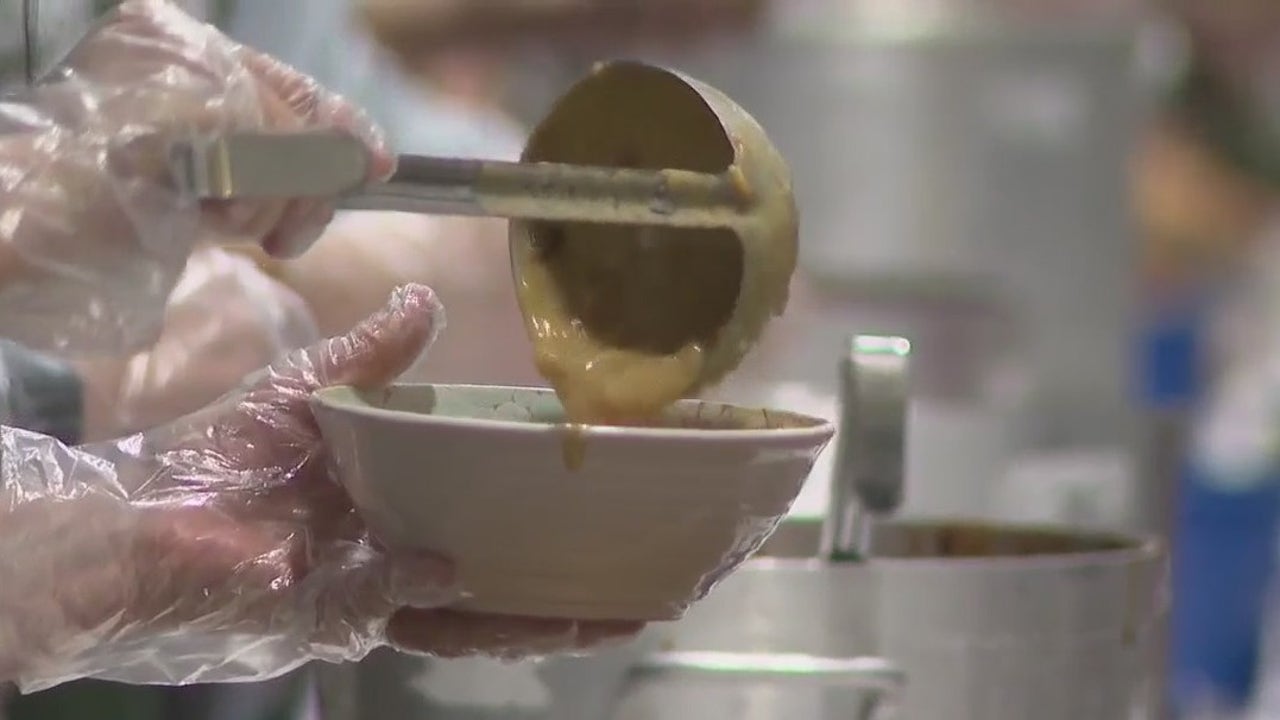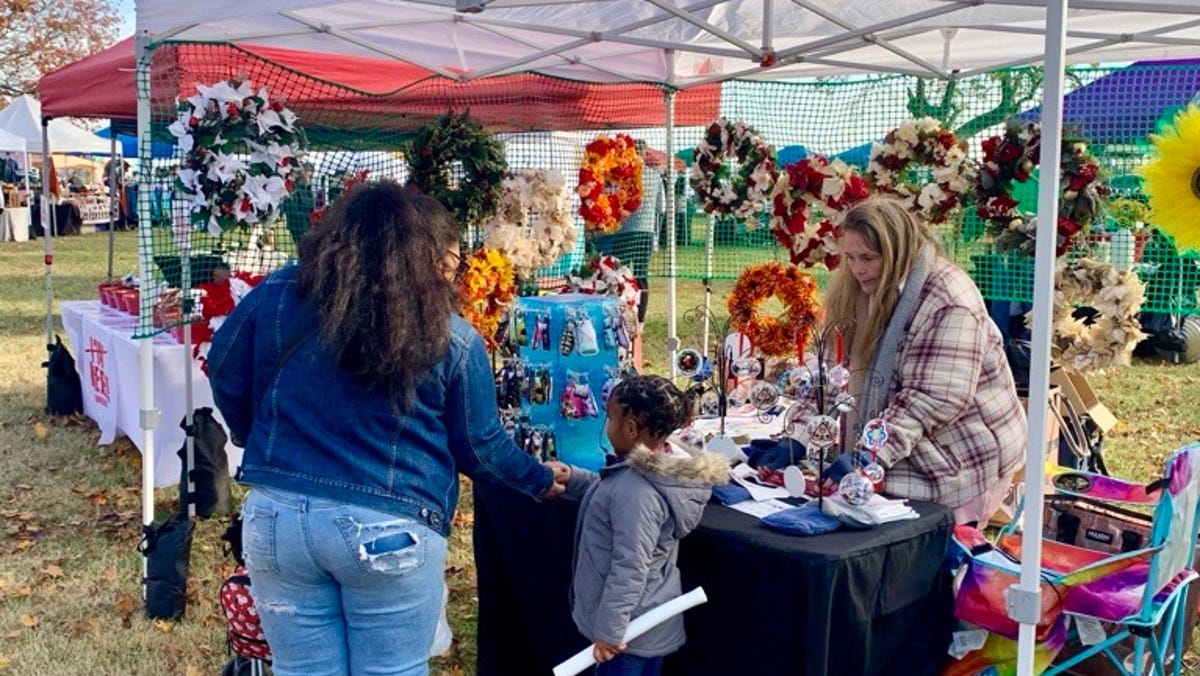Utah
Utah domestic violence killings are spiking in 2023

Estimated read time: 7-8
minutes
SALT LAKE CITY — A California man who drove to Utah to shoot and kill his brother. A Layton man accused of killing his wife and her parents. An Enoch man who shot and killed his wife, children and mother-in-law to death. A Salt Lake man who killed his teenage son before taking his own life.
During the first six months of 2023, Utah has investigated more domestic violence-related deaths than it did the previous five years during the same period.
According to statistics compiled by KSL.com, 22 people were killed in Utah from Jan. 1 through June 30 in domestic violence incidents. All but two of those deaths were from guns. In 18 of those 22 killings a direct family member is accused, while the others were allegedly committed by a boyfriend.
In comparison, there were 14 people who were killed in domestic violence incidents during the first six months of 2022; six in 2021; 14 in 2020; 11 in 2019; and nine in 2019, according to the Utah Bureau of Criminal Identification. Utah counts domestic violence-related “murder, non-negligent manslaughter and negligent manslaughter” in compiling its statistics.
The 22 domestic violence deaths during the first six months are more than all of 2021 domestic violence deaths, according to state’s statistics, and just two shy of all of 2022.
Elizabeth Sollis, a domestic violence victim advocate and former longtime spokeswoman for the Utah Domestic Violence Coalition, says the primary reasons for domestic violence are power and control. And the abuse doesn’t always start with physical assaults.
“The majority of physically abusive relationships start with emotional abuse. A lot of people want to discount the unhealthy, abusive behaviors they see or experience because they may not rise to the level of physical violence,” she said. “I truly believe the denial of progressive emotional and verbal abuse, which frequently escalates to physical violence, is part of why we’re seeing more severe and fatal cases of domestic violence.”
Sollis says she will often hear excuses such as, “But they’ve never been physically abusive.” She says the community cannot dismiss controlling and manipulative actions or comments made by a perpetrator, or pass off other abusive behaviors as proof of a “loving” relationship.
The year got off to a tragic start when eight members of an Enoch family were found dead in their home in January:
- Tausha Haight, 40; Haight’s mother, Gail Earl, 78; and Haight’s children — three daughters ages 17, 12, and 7, and two sons, ages 7 and 4 — were shot to death by the children’s father and Haight’s husband, Michael Orwin Haight, 42, who then took his own life.
- In March, Timothy Parker, 58, and his wife, Jeannie Parker, 50, were found deceased in their Spanish Fork home after officers were called to conduct a welfare check. Both were shot to death. Their son, Tryston Robert Erickson, 26, was arrested in Colorado following a chase with police.
- In April, Scott Roberts was shot and killed at his North Ogden home by his brother, Jeffrey Roberts, of Long Beach, California, who police say drove to Utah and shot his brother shortly after Scott answered the door. Jeffrey Roberts then set fire to the home and was killed in a shootout with responding officers. Scott Roberts’ wife, Jodi Roberts, survived.
- In May, 16-year-old Om Moses Gandhi was shot and killed by his father, Parth Gandhi, 49, at his neuropsychology clinic at 2936 S. Highland Drive. Parth Gandhi and his wife divorced in 2009 and had been involved in a bitter child custody battle ever since.
- Six days later in Layton, Anastasia Stevens, 36, and her father and stepmother — Becky Stevens, 61, and Donald Stevens, 73 — were found shot to death inside Anastasia Stevens’ home. Jeremy Bailey, 34, her husband, was charged with three counts of aggravated murder, a capital offense, and could potentially face the death penalty if convicted.
- On June 29, police say Dallas Wade Martineau, 40, was “lying in wait” in his brother-in-law’s West Haven backyard and when Russell Allen Evans, 50, came outside on the back porch, he was shot multiple times.
The total number of domestic violence-related killings could have been even higher if not for the medical attention given by doctors and first responders in several other Utah incidents, as well as just good luck for the victims. For example:
Sonia Salari says research has found that women are more likely to be murdered in the United States by a current or former intimate partner, while men are more likely to be killed by an acquaintance or complete stranger. The types of men who kill their significant others can typically be broken down into two categories — “homicidal-intent” and “suicidal-intent.”
Salari is a professor at the University of Utah in the Department of Family and Consumer Studies. She has a doctorate of philosophy in sociology with an expertise in family violence. She has published several articles and books about her research on intimate partner violence and guns.
Suicidal men, or men who kill their partner and then themselves, sometimes don’t show any red flags.
“People don’t think of them as a domestic violence offender,” Salari said. “They think the person is an upstanding individual — quiet, but seeming to be functioning well.
“The perpetrators were often reported to be kind or good parents. Neither the victims nor family members previously reported fear of danger from the perpetrator,” she also said in a 2021 article.
Firearms make domestic violence deadlier, with women five times more likely to die if their abuser owns a gun.
–University of Utah professor Sonia Salari
A homicidal-intent man, however, may have already exhibited abuse toward his partner, who is in fear and may be trying to get away from the perpetrator, she said.
“Most instances of intimate partner violence are difficult to detect, because neither victims nor perpetrators are likely to report family violence,” she said in the article.
Salari further noted in a 2018 article, “While not all (intimate partner violence) leads to murder, unresolved and ongoing abuse can escalate, increasing the risk of a male abuser killing his female victims.
“Male-on-female homicide, particularly in young (intimate partner) relationships, are associated with motives of isolation, competition, jealousy and entitlement,” she saids.
Salari has also done extensive research on gun violence and domestic shootings.
“Firearms make domestic violence deadlier, with women five times more likely to die if their abuser owns a gun,” according to an article she co-authored in 2021. “And 20 times higher mortality if they have been previously threatened with a firearm.”
She also points out that gun sales in the United State rose dramatically between 2018 and 2021.
Salari says many victims of domestic violence do not call police. But when someone does, she says those victims need to be believed.
“Victims are the experts in their own case and should be believed when they show concern about their safety, or when they seek help from police, a victim’s advocate, or court services,” she said.
A victim’s survival rate is 68% better if an expert, such as police or a victim’s advocate, get involved, Salari said. She says tools such as the lethality assessment protocol that police are required to conduct on domestic violence calls, are important and she hopes tools like that will continue to evolve.
“Our research suggests that (lethality assessment protocol) screening tools should be modified for older women, who are more likely to die by a husband with suicidal ideation, and perhaps no history of domestic violence. Under the cover of normalcy, most elder adult women do not realize they are endangered and do not appear to be fleeing in fear. While some in the media may falsely perceive this to be agreement with the violence, there is little evidence to suggest this is true.
“Most were ambushed while going about the business of the day, or while sleeping in bed,” she wrote in her 2021 article. “These women were cut down without warning in such a way that they didn’t seek protective orders.”
Domestic violence resources
Help for people in abusive relationships can be found by contacting:
Most recent Police & Courts stories
More stories you may be interested in

Utah
Toronto Maple Leafs vs. Utah Hockey Club – Game #21 Preview, Projected Lines & TV Info

The depth continues to be tested as the bodies keep dropping out of the lineup up front. Tonight, a resilient Maple Leafs team is seeking its fourth consecutive win as Alex Nylander debuts on an all-Marlies line against a tired 8-9-2 Utah Hockey Club (7:00 p.m. EST, TSN4).
Head-to-Head Stats: Maple Leafs vs. Utah
In the 2024-25 regular season statistics, Utah holds the advantage in three out of five offensive categories and three out of five defensive categories.
Game Day Quotes
Craig Berube on what he learned from the pre-scout of Utah’s 6-1 win over Pittsburgh last night:
The power play was good. They got three. They’re fast, and they have a lot of skill. They make a lot of plays — a lot of west-west plays — and get up the ice really well. Their D are involved.
We have to check well tonight. We have to stay out of the penalty box. Our PK is going to be important.
Overall, we need to take time and space away from this team right out of the offensive zone. Be hard on them breaking plays up. That will be very important tonight.
Berube on the decision to start Joseph Woll over Anthony Stolarz tonight:
[Woll] had a really good game against Vegas. We are just thinking ahead here. Stolly has played a lot. We have some time here. He is working in practice and doing a lot of good things.
That’s really it. We just talk about things and make decisions on what we think is best for the goalies and the team.
I talked earlier about how both goalies are going to see more net than they have in the past. It is important that we manage it to the best of our abilities.
Woll is coming off a real solid game against a real good team. We wanted to go back with him.
Berube on what improvements he is looking for from his team offensively after a week of practice:
Attacking more than we are. There are times when we tend to just control the play a little bit too much on the outside. We could attack more with more shots to the net, get pucks low to high, and do more on-and-off shooting while getting people to the net with numbers around there.
Resets to the back of the net, making quick plays out of there, doing things a little bit quicker, moving it quicker, supporting it quicker, and getting more pucks to the net than we are.
Berube on why Fraser Minten is so trustworthy despite his lack of experience:
It goes back to a great draft pick, finding a player who is so responsible at a young age. You guys aren’t on the bench, but just hearing him talk on the bench and how he sees the game, he says all the right things.
You don’t see young guys do that very often. He is already doing it at a very young age with very little experience. It is great to see. It’s refreshing. It really is.
Minten on the keys to success for his line with Nikita Grebenkin and Alex Nylander:
We just have to be simple with pucks and forecheck, using our speed to get pucks back on the forecheck. From there, let the skill make things happen. Those guys are really good when they get it back, so we have to make sure we are forechecking hard to retrieve pucks, and we’ll go from there.
Minten on the keys to success in the net-front role on the top power-play unit:
Try not to overcomplicate it too much. Get the goalie’s eyes, get in sight lines, try to get pucks back, get some tips, get some screens, and cause a little chaos. You can draw a defender with you. If you’re going backdoor, you give them a little more space. Be ready for anything coming to you. They are great players, so just try to read off of them, and hopefully, it goes well.
Minten on his experience level in front of the net on the power play:
In junior, I was mostly a flank guy with the puck more, but last year, I kind of got into it more at the end of the year, and I have been playing that role with the Marlies every game so far this year.
Minten on Morgan Rielly’s guidance at the NHL level:
He has been amazing. We have a lot in common, being from the same place. He took me under his wing a little bit and has been super nice. It makes it easy when you are coming in at 18 or 19 and there is a guy who comes to talk to you and is a really nice, supportive guy and friend. He has been awesome.
Toronto Maple Leafs Projected Lines
Forwards
#74 Bobby McMann — #91 John Tavares — #16 Mitch Marner
#89 Nick Robertson— #29 Pontus Holmberg — #88 William Nylander
#71 Nikita Grebenkin — #39 Fraser Minten — #92 Alex Nylander
#46 Alex Steeves — #24 Connor Dewar — #18 Steven Lorentz
Defensemen
#22 Jake McCabe — #8 Chris Tanev
#44 Morgan Rielly — #95 Oliver Ekman-Larsson
#2 Simon Benoit — #25 Conor Timmins
Goaltenders
Starter: #60 Joseph Woll
#41 Anthony Stolarz
Extras: Jani Hakanpää, Philippe Myers
Suspended: Ryan Reaves (four games remaining)
Injured (IR): Auston Matthews, Max Domi, Matthew Knies
Injured (LTIR): Calle Jarnkrok, Dakota Mermis, Max Pacioretty, David Kampf
Utah Hockey Club Projected Lines
Forwards
#9 Clayton Keller — #27 Barrett Hayton — #8 Nick Schmaltz
#22 Jack McBain — #92 Logan Cooley — #11 Dylan Guenther
#63 Matias Maccelli — #17 Nick Bjugstad — #67 Lawson Course
#15 Alex Kerfoot — #82 Kevin Stenlund — #53 Michael Carcone
Defensemen
#98 Mikhail Sergachev — #2 Olli Maata
#28 Ian Cole — #10 Maveric Lamoureux
#7 Michael Kesselring — #41 Robert Bortuzzo
Goaltenders
Starter: #70 Karel Vejmelka
Jayson Stauber
Injured: Sean Durzi, John Marino, Connor Ingram
Utah
NHL On Tap: Maple Leafs host Utah, seek 4th straight win without Matthews | NHL.com

Welcome to the NHL On Tap, a daily look at the games on the NHL schedule. There is one game on the schedule for Sunday, which will be televised nationally in the United States and Canada.
Game of the day
Utah Hockey Club at Toronto Maple Leafs (7 p.m. ET; TVAS, TSN4, NHLN, Utah16)
Mitch Marner, William Nylander and John Tavares have all stepped up for the Maple Leafs (12-6-2) in the absence of captain Auston Matthews and look to continue the trend against Utah (8-9-3) at Scotiabank Arena. Marner has 12 points (four goals, eight assists), Nylander nine points (four goals, five assists) and Tavares eight points (four goals, four assists) in the seven games without Matthews, who is out with an upper-body injury. Toronto has won three in a row and is 6-1-0 without Matthews, who skated prior to practice Saturday and said he could return from an upper-body injury this upcoming week. Marner leads Toronto with 26 points (six goals, 20 assists) in 20 games and has points in six of the seven games Matthews has missed. Maple Leafs goalie Joseph Wall made 31 saves in a 3-0 win against the Vegas Golden Knights on Wednesday for his first shutout of the season and second in the NHL. Utah is playing the second game of a back-to-back for the first time in team history and will look to build on a 6-1 win at the Pittsburgh Penguins on Saturday. Dylan Guenther had two goals and an assist, and Clayton Keller had three assists, helping Utah end a three-game losing streak. Goalie Jaxson Stauber could make his Utah debut after being recalled from Tucson of the American Hockey League on Wednesday; the 25-year-old has not played an NHL game since Feb. 22, 2023, with the Chicago Blackhawks. No. 1 goalie Connor Ingram has missed the past two games with an upper-body injury.
Utah
Iowa State football: Three stars in win for Cyclones over Utah in Big 12 action

It takes a complete football team to win a championship. Iowa State is finding that out with each passing week.
Seemingly left for dead in the heated Big 12 Conference race, the Cyclones now find themselves one win away from competing for the league title following a thrilling 31-28 victory over Utah Saturday night.
Iowa State (9-2, 7-2) reached the nine-win mark before a bowl game for the first time in program history, and could end one of the longest droughts in NCAA history by reaching 10 wins. The Cyclones and Vanderbilt are the only remaining Power 5 programs to never reach 10 wins, as Indiana did earlier this year.
After taking a 24-13 lead on Utah midway through the third quarter, the Cyclones needed a rally, scoring the game-winning touchdown with 91 seconds to go. The defense forced a missed field goal to seal the win.
Here are three stars from Iowa State’s win over Utah:
Known for his power running, Carson Hansen showed off his arm on a key third-down trick play that led to his second rushing touchdown. Hansen, a sophomore, took a halfback pass and found Gabe Burkle for a 26-yard completion.
That put the ball at the Utah 3 and Hansen would plow his way into the end zone on the next play for the game-winning points. He finished the night with a team-high 57 yards on 14 carries to go along with the 26-yard pass while also catching two balls for another 28 yards.
At 6-2 and over 220 pounds, Hansen is the thunder to Abu Sama’s lightning. He now has 11 rushing touchdowns on the year to go along with 560 yards after rushing for just 67 last season as a freshman.
Anytime Rocco Becht needed to make a big play in the passing game, he looked in the direction of Jayden Higgins. And Higgins stepped up for his quarterback, who was not quite as sharp as he typically has been.
Higgins finished with nine receptions for 155 yards and a touchdown, surpassing 1,000 yards for the season. The 6-foot-4 senior out of South Miami became just the seventh different Cyclone to reach the number after missing out last year with 983 yards.
With at least two, and maybe more, games to go, Higgins sits sixth on the school’s single-season list for yards with 1,015. Hakeem Butler is first with 1,318. Higgins and teammate Jaylin Noel, who has 976 yards, are set to become the first Cyclone teammates to eclipse 1,000 yards in the same season in school history.
Higgins is also just two yards away from becoming just the 10th Iowa State receiver to reach 2,000 career yards, joining the likes of Allen Lazard, Xavier Hutchinson and Charlie Kolar, along with Noel.
It’s been a difficult season in regards to injuries on both sides of the ball for Iowa State. But the defense has really been hurt with Malik Verdon out.
Verdon, a junior, recorded a team-leading 12 tackles including a sack, as the Cyclones held Utah to just 99 yards of total offense through three quarters.
And while the Utes were able to finally put together sustained drives in the fourth, when they needed to make a play, Iowa State did. Verdon went out for a short time after appearing to reinjure his arm that has a cast due to a hairline fracture, but would return to the field later in the fourth.
-

 Business1 week ago
Business1 week agoColumn: Molly White's message for journalists going freelance — be ready for the pitfalls
-

 Science5 days ago
Science5 days agoTrump nominates Dr. Oz to head Medicare and Medicaid and help take on 'illness industrial complex'
-

 Politics7 days ago
Politics7 days agoTrump taps FCC member Brendan Carr to lead agency: 'Warrior for Free Speech'
-
/cdn.vox-cdn.com/uploads/chorus_asset/file/25739950/247386_Elon_Musk_Open_AI_CVirginia.jpg)
/cdn.vox-cdn.com/uploads/chorus_asset/file/25739950/247386_Elon_Musk_Open_AI_CVirginia.jpg) Technology6 days ago
Technology6 days agoInside Elon Musk’s messy breakup with OpenAI
-

 Lifestyle1 week ago
Lifestyle1 week agoSome in the U.S. farm industry are alarmed by Trump's embrace of RFK Jr. and tariffs
-

 World7 days ago
World7 days agoProtesters in Slovakia rally against Robert Fico’s populist government
-

 News7 days ago
News7 days agoThey disagree about a lot, but these singers figure out how to stay in harmony
-

 News7 days ago
News7 days agoGaetz-gate: Navigating the President-elect's most baffling Cabinet pick



















